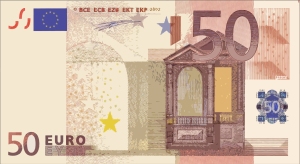Future of the Euro Conference, UC Berkeley
 The Future of the Euro: Lessons from History, a conference sponsored by the Austrian Marshall Plan Foundation and the Austrian National Bank, will be held at the University of California, Berkeley on April 16, 2013. The event focuses on the following questions: Will the Euro survive? Should it survive? Will the current crisis lead to the banking, fiscal, and political union ultimately required for monetary union and envisioned when the euro was created? Or will current efforts to stabilize the monetary union with only limited moves in the direction of banking, fiscal and political union suffice to save the euro? Is there danger that pressure for deeper integration will only worsen the “democratic deficit problem” and create a backlash against the larger European project?
The Future of the Euro: Lessons from History, a conference sponsored by the Austrian Marshall Plan Foundation and the Austrian National Bank, will be held at the University of California, Berkeley on April 16, 2013. The event focuses on the following questions: Will the Euro survive? Should it survive? Will the current crisis lead to the banking, fiscal, and political union ultimately required for monetary union and envisioned when the euro was created? Or will current efforts to stabilize the monetary union with only limited moves in the direction of banking, fiscal and political union suffice to save the euro? Is there danger that pressure for deeper integration will only worsen the “democratic deficit problem” and create a backlash against the larger European project?
The Future of the Euro Conference will be distinctive in two ways. First, it will highlight the importance of an historical perspective for the understanding of present and future trajectories in the eurozone and in Europe as a whole. It will explore what history might be able to teach us about the options for a eurozone characterized by divergence between a rich, competitive core and an impoverished, uncompetitive periphery, as well as the institutional options that might be necessary for stability and growth in Europe as a whole. Perhaps historical precedents—e.g. the success of monetary union in the United States, in reunified Germany, or the 19th Century success of the Gold Standard have something to tell us about the requirements for success in preserving the euro. What price was paid for these and other successes? What can past failures — e.g. the Latin Monetary Union, the Austro-Hungarian currency zone, the ruble zone, the Gold Standard in the 20th century — tell us about the likely consequences of a euro break-up and the fate of countries that abandon a currency regime? To what extent does the size of the eurozone and its importance in the global economy make historical comparisons difficult if not impossible?
Second, by keeping the number of participants relatively small, this conference will encourage fruitful and wide-ranging discussion.
It will consist of four panels: 1) Political Union 2) Banking Union 3) Fiscal Union and 4) Monetary Union.